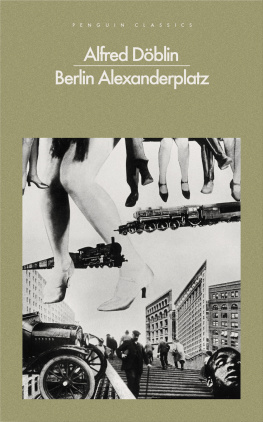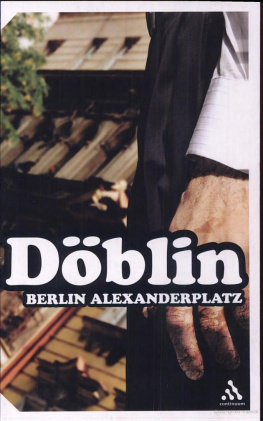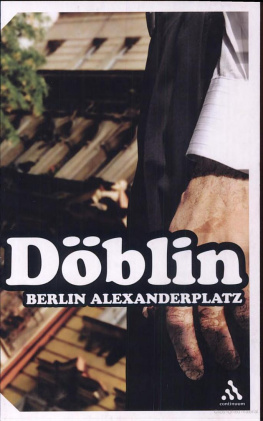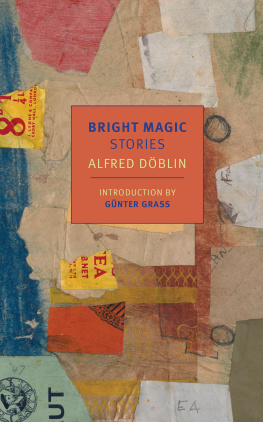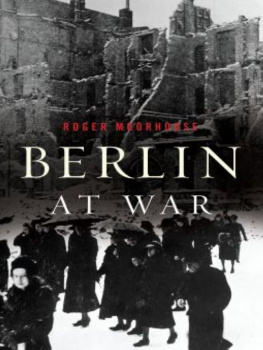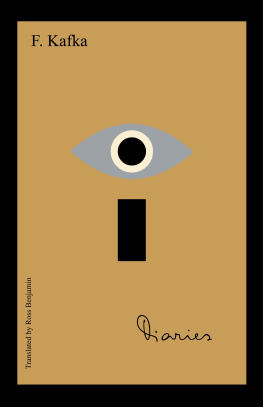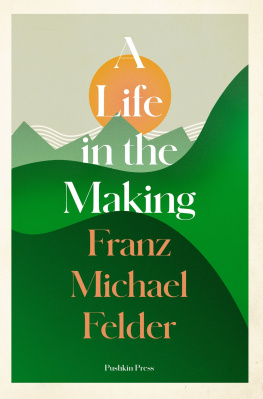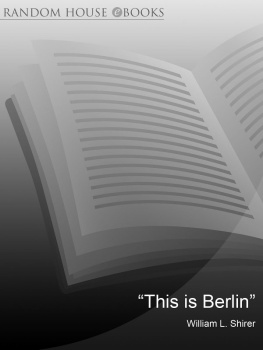Notes
. These words, The cry resounds like thunders peal, / Like crashing waves and clang of steel: / The Rhine, the Rhine, our German Rhine, / Who will defend our stream divine? are from the nineteenth-century patriotic song Die Wacht am Rhein. For obvious reasons, it was highly popular during the First World War. See also pp. 9, 50, 813, 121, 213, 429, 439.
. The Heckerlied of 1848, here in its original revolutionary form, not in the obnoxious anti-Semitic adaptation sung by the Nazis. See also pp. 76, 85.
. Onward, brothers, to light and freedom, a socialist rallying song.
. Setting of Ludwig Uhlands nineteenth-century poem Der gute Kamerad, sung throughout the twentieth century at German military funerals. In the Weimar period and the Third Reich, it was instrumentalized by the Right as a celebration of sacrifice and heroic death in battle. I once had a comrade, / You will find no better. / The drum called to battle, / He walked at my side, / In the same pace and step. // A bullet came a-flying, / Is it my turn now or yours? / He was swept away, / He lies at my feet, / Like it were a part of me See also pp. 138, 278, 279, 437.
. Berlin Alexanderplatz: The Story of Franz Biberhopf, trans. Eugene Jolas (London: Penguin Modern Classics, 1978), p. 96.
. Hast du geliebt am schnen Rhein, a popular Weimar song, lyrics by Hans Willi Mertens (18651921).
. Derisory spoonerist version of the opening of Schillers Die Glocke, substituting Mehl (flour) for Lehm (clay).
. Manoli was a German make of cigarette. In 1910, the earliest illuminated advertisement in Berlin showed the letters of the word Manoli dispersing in a cloud of coloured lights; this led to Manoli becoming a term for loopy or dippy.
. Berlin Alexanderplatz, trans. Eugene Jolas, pp. 2923.
. Berlin Alexanderplatz, trans. Eugene Jolas, p. 419.
. Berlin Alexanderplatz, trans. Eugene Jolas, p. 421.
. Berlin Alexanderplatz, trans. Eugene Jolas, p. 425.
. Bee-sting and Moors head are the macabre names of two types of German confectionery, both very sweet.
. Dblins contribution to Writers Relay on the Omnibus, in Berliner Tageblatt, 1 January 1929.
. Tiere sehen dich an, by the popular author Paul Eipper, published in 1928, and filmed in 1930. Georg Salter, who designed the cover, also designed the charming original cover for Berlin Alexanderplatz.
. edel sei der Mensch, hilfreich und gut: Goethe.
Alfred Dblin
BERLIN ALEXANDERPLATZ
Translated with an Afterword by Michael Hofmann
PENGUIN CLASSICS
UK | USA | Canada | Ireland | Australia
India | New Zealand | South Africa
Penguin Books is part of the Penguin Random House group of companies whose addresses can be found at global.penguinrandomhouse.com.
First published in 1929 by S. Fischer Verlag, Berlin
First published in Penguin Classics 2018
Copyright S. Fischer Verlag GMBH, Frankfurt am Main, 2008
Translation copyright Michael Hofmann, 2018
The moral right of the author and translator has been asserted
Cover photograph: Photomontage ralise pour le programme du film: Berlin, symphonie dune grande ville
Ralisateur: Walter Ruttmann. Photo bpk Bildagentu
ISBN: 978-0-141-93091-6
The subject of this book is the life of the former cement worker and haulier Franz Biberkopf in Berlin. As our story begins, he has just been released from prison, where he did time for some stupid stuff; now he is back in Berlin, determined to go straight.
To begin with, he succeeds. But then, though doing all right for himself financially, he gets involved in a set-to with an unpredictable external agency that looks an awful lot like fate.
Three times the force attacks him and disrupts his scheme. The first time it comes at him with dishonesty and deception. Our man is able to get to his feet, he is still good to stand.
Then it strikes him a low blow. He has trouble getting up from that, he is almost counted out.
And finally it hits him with monstrous and extreme violence.
With that, our man who had been doing so well is finished. He throws in the towel, he has no idea what day of the week it is, it seems all up with him.
Before he can make an end, however, his blindness is taken from him in a way I do not describe here. His fault is revealed to him in the clearest terms. It is indeed his, the fault of his plan, which may once have looked sensible enough to him, but now looks quite different, not unexceptionable and straightforward, but full of arrogance and ignorance, and further vitiated with impertinence, cowardice and weakness.
The terrible thing that was his life acquires a purpose. A radical cure has been performed on Franz Biberkopf. And in the end we see our man back on Alexanderplatz, greatly changed, considerably the worse for wear, but straightened out.
To see and hear this will be worthwhile for many readers who, like Franz Biberkopf, fill out a human skin, but, again like Franz Biberkopf, happen to want more from life than a piece of bread.
Chapter One
As our story begins, Franz Biberkopf leaves Tegel Penitentiary, where a previous foolish life has taken him. He has difficulty initially readjusting to Berlin, but finally, to his relief, he succeeds, and vows to stick to the straight and narrow from now on.
The 41 tram into the city
He stood outside the gates of Tegel Penitentiary, a free man. Only yesterday, he had been on the allotments with the others, hoeing potatoes in his convict stripes, and now he was wearing his yellow summer duster, they were hoeing and he was free. He leant against the red wall and allowed one tram after another to pass, and he didnt take any of them. The guard on the gate strolled past him a few times, pointed to the tram, he didnt take it. The awful moment was at hand (awful, why so awful, Franz?), his four years were up. The black iron gates hed been eyeing with increasing revulsion (revulsion, why revulsion) for the past year swung shut behind him. He was being put out. The others were inside, carpentering, varnishing, sorting, gluing, with two years ahead of them, with five years. He was standing at the tram stop.
His real punishment was just beginning.
He shook himself, gulped. He stood with one foot on the other. Suddenly he took a run up and he was sitting in the tram, with passengers all around him. At first it felt like being at the dentists, when the dentist has the offending tooth gripped in his pliers and is pulling, and it feels like your head will explode with the pain. He craned his neck to look back at the red wall, but the tram rushed him away down the tracks, and he was left merely facing the general direction. The tram turned a corner, trees and buildings interposed themselves. The streets were full of bustle, Seestrasse, people got on and off. Something in him screamed: Watch out, watch out. The tip of his nose felt cold, something brushed his cheek. Zwlf Uhr Mittagszeitung, B.Z, Die neuste Illustrierte

